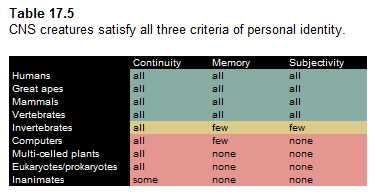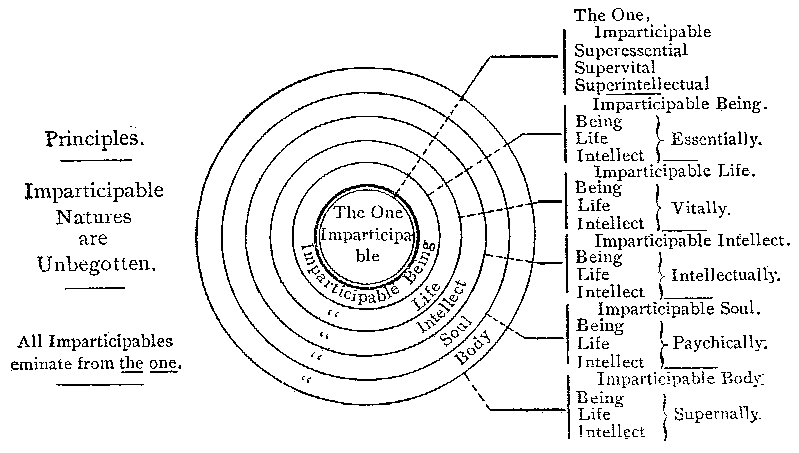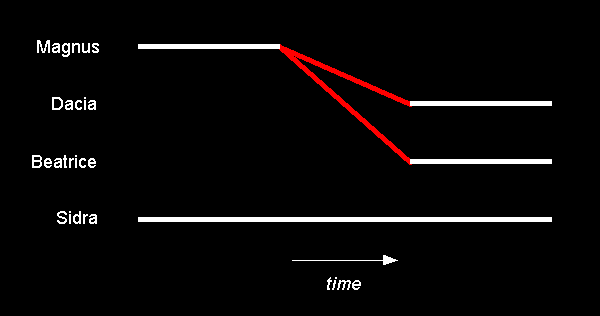re: a needless multiplication of entities
If it isn't a physical transfer then the transfer is unphysical.
That's not the case; not in any formulation of existential passage reasoning.
Consider Old and New Paul. Everyone seems to agree that Old Paul passes to New. From Old Paul's perspective, this passage occurs.
When we ask
why this is, spurious criteria may appear:
- The same-structure criterion has appeared in this thread, and we've seen that it cannot be a true criterion because New Paul's structure must differ from Old Paul's.
- A memory criterion sometimes appears, but it cannot be a true criterion because New Paul lacks Old Paul's memory.
- A continuity criterion sometimes appears, but it cannot be a true criterion because the very thing one would need to continue - recursive subjective process - is discontinuous in the unfelt time-gap, as by definition.
When we inventory the necessities of Old Paul's passage to New, we're left with no criteria other than the subjective/objective transitions themselves, and their relative order in time.
Likewise with Nicos and Thanos, and the inferred unfelt time-gap of existential passage.
wstewart said:
It is important to state again that no incorporeal substance is posited as transferring between Nicos and Thanos. Any suggestion of incorporeality would be duplicitous at this point, in light of what has been said heretofore. So incorporeal transfers are not to be inferred.
Much the same restriction must be placed on physical transfers. Thanos is Nicos' posthumous son, but this filial link is not relevant to the metaphysical event. Nicos' spermatic seed conveys no memory of Nicos' life to the newborn. We still assume Nicos' memories to have been lost irretrievably at death. No "thing" is imagined to have transferred any memory, or personality, or soul, or any psychic entity whatsoever from Nicos to Thanos.
The passage is understood as unfelt time-gap, with nothing superadded — rather, and critically, with individuation subtracted. All that has "passed" is a shift of perceived existential "moment" — a natural relocation of the awareness of existence. It is in this sense an "existential passage" which Nicos encounters...
Now, were one to posit some incorporeal entity in the passage of Nicos to Thanos, for consistency one would need to apply that same entity to the passage of Old to New Paul, as the critical events are the same in both cases. And then one would have to examine less extreme cases, in which New Paul's injury is less severe, and try to determine which cases require incorporeal "help", and which do not. And of course these determinations would be decisions, requiring information and energy, extracted and used by countless incorporeal enforcers of whatever type. The result is an unavoidable multiplication of metaphysical entities, none of which are obviously needed, all of which can go under Occam's Razor.
--
re: the problem of incorporeal function
reality could hold any number of unphysical things without it contradicting anything...It would not violate physics at all...
Try to describe the
function of your incorporeal queue enforcer -- its actual interaction with the physical world -- and you'll quickly find yourself contradicting more authorities than you know. And like it or not, no enforcer can enforce without physical interaction.
Proclus was a talented philosopher, and his incorporeal reasoning was imaginative, perhaps inspired. Even so, when he tried to describe the function of his incorporeal "reversions", he opened himself to direct refutation. (And you saw how that worked,
right?)
Similar problems will afflict your reasoning for incorporeal enforcers, if you dare to describe them in functional terms. And lest anyone think this is just a difficulty of transmigration arguments, know that the same problems afflict enforcer-arguments designed to
prevent Nicos' existential passage to Thanos.
--
re: subjective/objective transitions
Maybe our differences is because of the concept of the nature of the subjective/objective transitions. What is the nature of that?
As argued in
Ch. 8 and
Ch. 9, at some length. If something catches your eye there, you might make note of it. Please see also endnote
[29] for alternate formulations by other writers.



